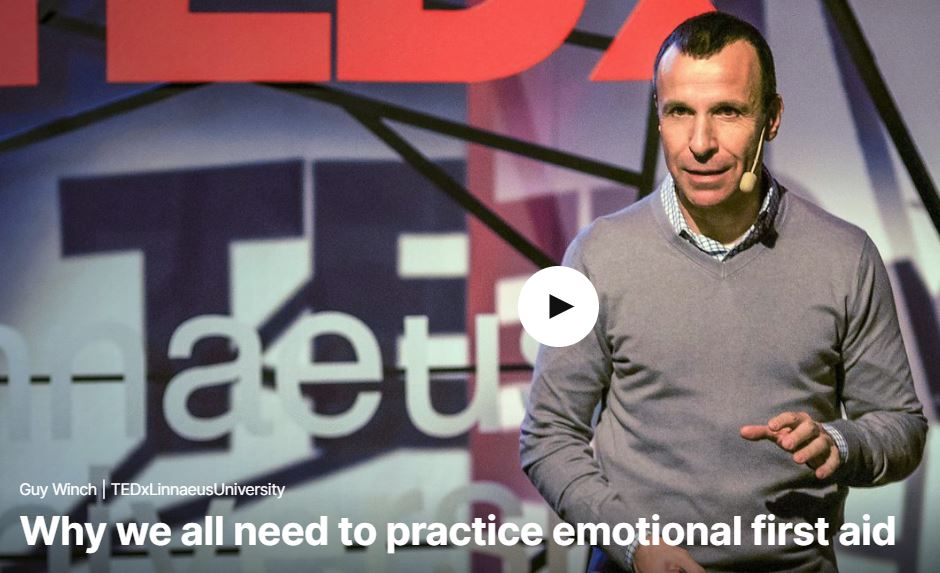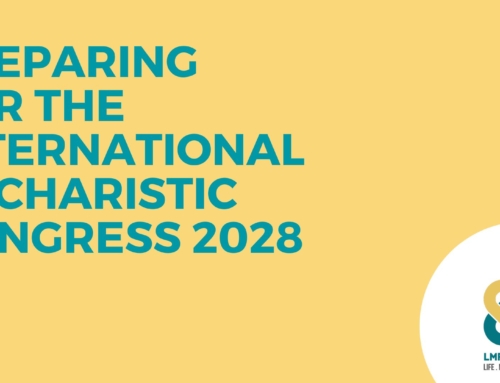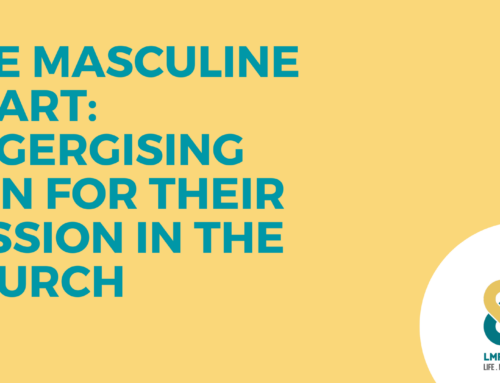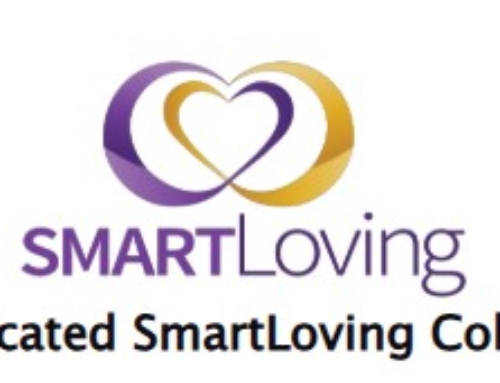In this TED talk, psychologist Guy Winch makes the case for practicing ’emotional first aid’. He raises some interesting points, like this one:
Loneliness creates a deep psychological wound, one that distorts our perceptions and scrambles our thinking. It makes us believe that those around us care much less than they actually do. It makes us really afraid to reach out, because why set yourself up for rejection and heartache when your heart is already aching more than you can stand? I was in the grips of real loneliness back then, but I was surrounded by people all day, so it never occurred to me. But loneliness is defined purely subjectively. It depends solely on whether you feel emotionally or socially disconnected from those around you.
Or this one:
We know from dozens of studies that when your self-esteem is lower, you are more vulnerable to stress and to anxiety; that failures and rejections hurt more, and it takes longer to recover from them. So when you get rejected, the first thing you should be doing is to revive your self-esteem, not join Fight Club and beat it into a pulp. When you’re in emotional pain, treat yourself with the same compassion you would expect from a truly good friend.
Read the full transcript here
Share your thoughts below.






It was fascinating how he identified the way certain emotional experiences (like loneliness, failure, rejection) predispose the mind to distorted thinking. We presume that loneliness is just one of a number of unpleasant emotions, but he is suggesting that the emotion itself is implicated in doing injury.
“Loneliness creates a deep psychological wound, one that distorts our perceptions and scrambles our thinking. It makes us believe that those around us care much less than they actually do. It makes us really afraid to reach out, because why set yourself up for rejection and heartache when your heart is already aching more than you can stand?”
This would suggest that rather than practicing unconditional acceptance of our emotions, we should have a different approach to emotions that cause ‘harm’. This is very challenging to the existing wisdom that holds that emotions are morally neutral and need to be accepted as they are.
Another way to frame this and that possibly reconcile the two ideas is that loneliness, failure and rejection are not actually emotions. They are interpretations of our situation that carry a self-condemnation load. So, we are lonely because people don’t like us. We failed, because we are useless. We were rejected because we are unlovable.
If we were to reflect on the emotions themselves, loneliness might be better named as ‘hunger or yearning for connection’. It is sourced in a deep need to be known and loved. It often goes unfulfilled leading us to question our worthiness, and thus the frustration of this need, coupled with the self-condemnation, is the experience we call loneliness.
Failure could be named as ‘discouragement by my lack of success’ and rejection as ‘humiliation to be judged as inadequate’. These have an emotional response that is interpreted in a way that condemns ourselves.
The judgments that we make of ourselves in these emotional states unleashes the ‘shame monster’ that takes the circumstances of our environment or the limitations of the people around us, and reinterprets them as chronic deficiencies in ourselves. Thus, one could argue that it is not the emotions themselves that causes harm, but the faulty interpretation that leads to self-condemnation and shame.
So maybe if we were to practise a type of mindfulness where we are able to step back, and observe these emotions, as if from the perspective of a third person, we can then recognise them for what they are. In doing this, and naming them, their power over our state of mind can gradually be relinquished, as we exercise alternative responses to those habitually destructive thought streams and behaviours previously engaged in. Just a thought…